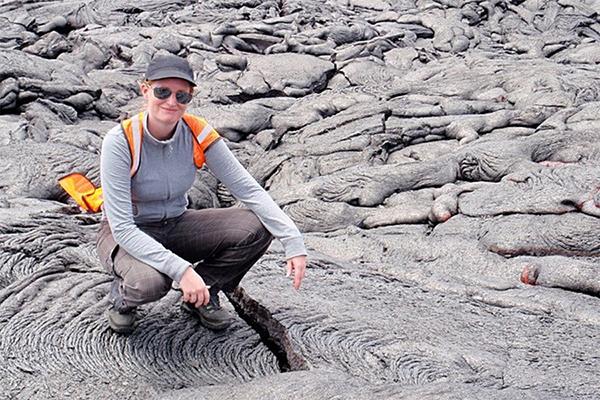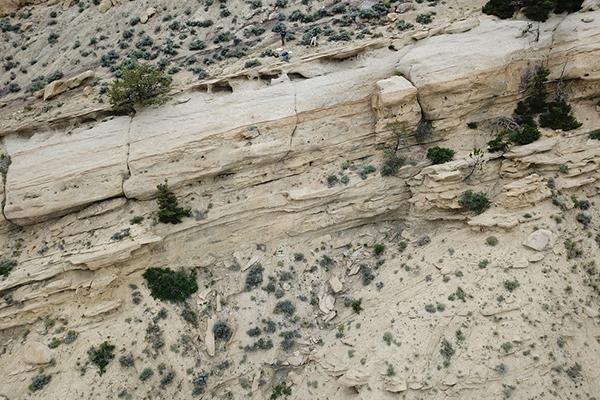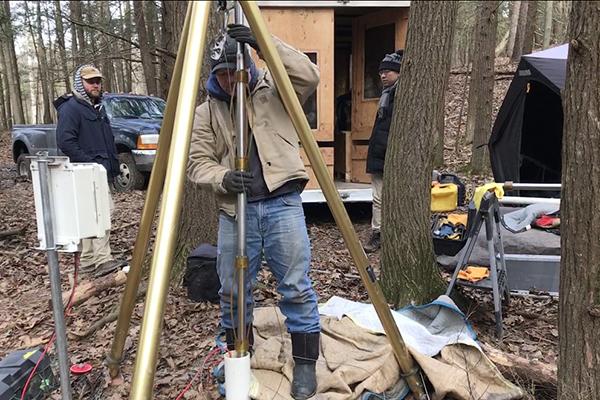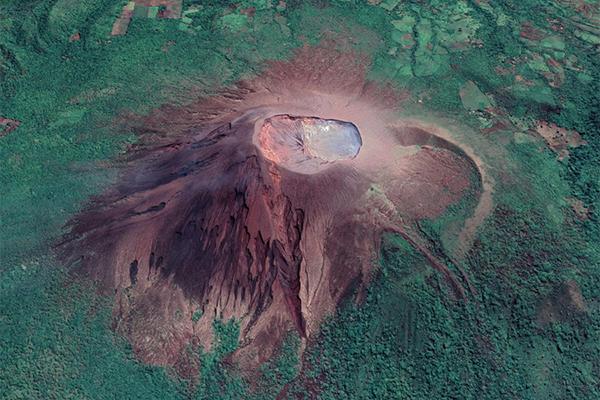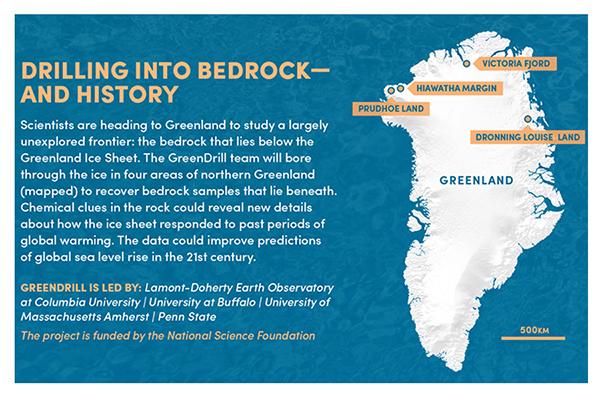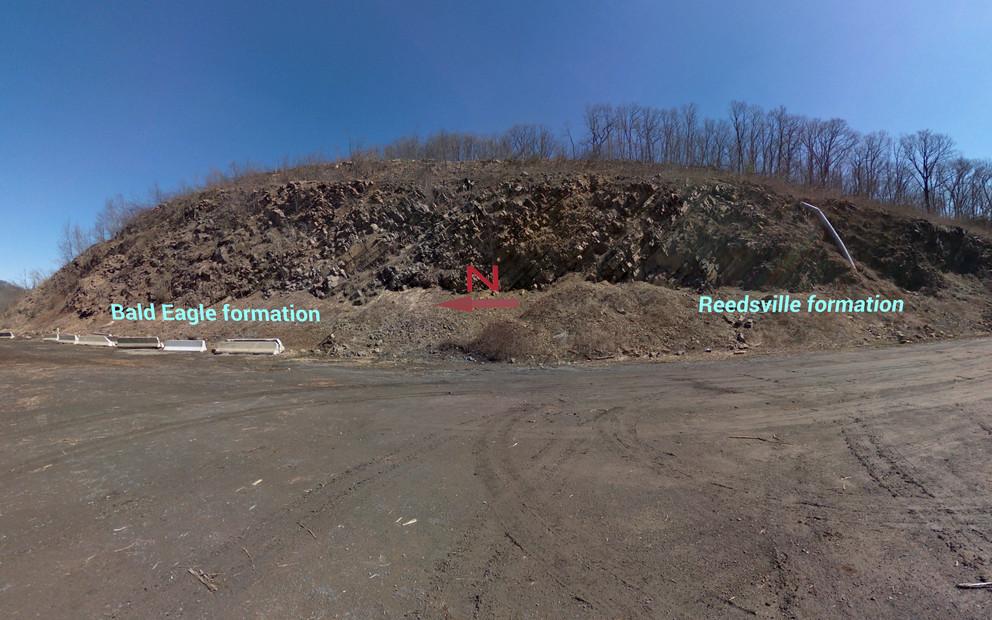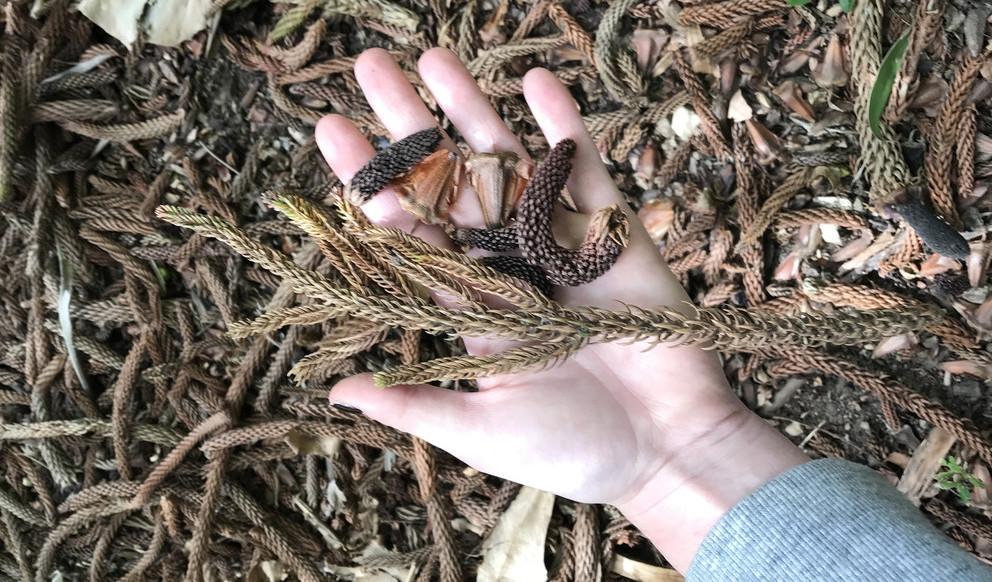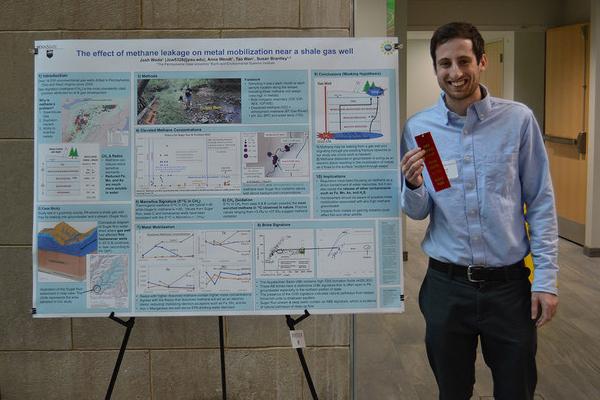Penn State students are working virtually on the Pennsylvania Solar Center’s Renew PA Works campaign in an effort to educate Pennsylvanians about the benefits of renewable energy, including job creation. The opportunity is made possible through City Semester, an internship program facilitated by the Penn State Center Pittsburgh, a Penn State Outreach service.
Christelle Wauthier, associate professor of geosciences in the College of Earth and Mineral Sciences, received a Faculty Early Career Development Program (CAREER) Award from the National Science Foundation to develop numerical models to characterize volcanic flank instability processes.
In a field exercise, geosciences student Katie Reilly moved from point to point, analyzing surface geological formations, hoping to gain insight into the environmental conditions that formed portions of the Rocky Mountains.
For experienced undergraduate students in Penn State's College of Earth and Mineral Sciences, this capstone field camp is a rite of passage. Each year, dozens of students usually spend six weeks exploring the topography and geologic features of the Western United States, analyzing firsthand the expression of forces that they’ve spent years learning.
Roman DiBiase won’t soon forget the name of an early mentor when he began his career at Penn State in 2014.
He was recently named the Rudy L. Slingerland Early Career Professor of Geosciences, a distinction that honors the now retired Penn State professor and will help fund DiBiase’s research studying how landscapes erode over geologic time, shaping mountains and in an instant leading to hazards from fires, floods and landslides.
UNIVERSITY PARK, Pa. — Chemical reactions deep below ground affect water quality, but methods for “seeing” them are time-consuming, expensive and limited in scope. A Penn State-led research team found that seismic waves can help to identify these reactions under an entire watershed and protect groundwater resources.
“About one third of the U.S. population gets their drinking water from groundwater, so we need to protect this valuable resource,” said Susan Brantley, distinguished professor of geosciences and director of the Earth and Environmental Systems Institute (EESI) at Penn State. “At this point, however, we don’t know where the water is or how it moves in the subsurface because we don’t know what is down there. In this study we used human-generated seismic waves — similar to the waves from earthquakes — to look under the surface.”
The shape of volcanoes and their craters provide critical information on their formation and eruptive history. Techniques applied to photographs — photogrammetry — show promise and utility in correlating shape change to volcanic background and eruption activity.
Changes in volcano shape — morphology — that occur with major eruptions are quantifiable, but background volcanic activity, manifesting as small volume explosions and crater wall collapse, can also cause changes in morphology and are not well quantified.
The Greenland Ice Sheet holds enough water to raise sea levels nearly 24 feet, yet it remains difficult to predict the rate of melt and possible tipping points in the stability of the ice sheet.
Climate change is now causing Greenland to shed ice rapidly, and even a few feet of sea level rise may have grim implications for coastal cities and low-lying islands. A new project aimed at drilling through the ice to the underlying bedrock promises to reveal the ice sheet’s past in unprecedented detail and enable more accurate predictions of how it may add to rising seas in the 21st century.
Classes may have been held remotely during the previous spring semester, but Penn State faculty members found creative ways to bring field trips to their students, even when they couldn’t necessarily bring students out into the field. Two courses in Penn State's College of Earth and Mineral Sciences employed virtual reality field trips last semester to continue delivering the same high degree of academic quality that Penn State is known for around the world.
Newly unearthed, surprisingly well-preserved conifer fossils from Patagonia, Argentina, show that an endangered and celebrated group of tropical West Pacific trees has roots in the ancient supercontinent that once comprised Australia, Antarctica and South America, according to an international team of researchers.
Our graduate students have had a productive academic year! View the list of publications.



